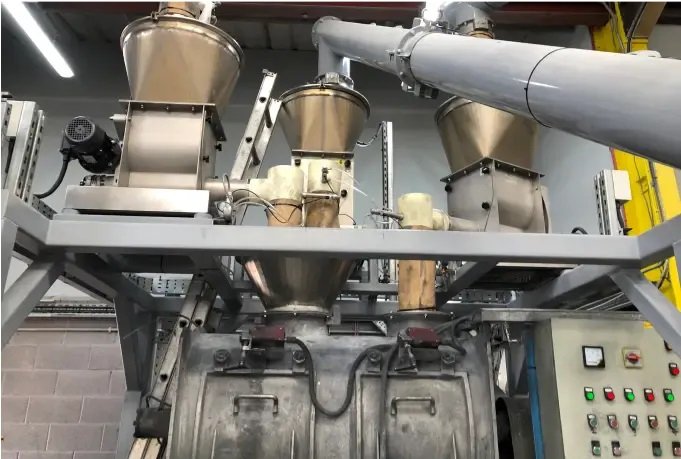About
Bulk handling systems play a crucial role in various industries by efficiently managing the movement, storage, and processing of bulk materials. These systems are designed to handle large quantities of materials such as grains, minerals, chemicals, and more, ensuring smooth and efficient operations. This article delves into the essential components of bulk handling systems and their benefits, highlighting why they are indispensable in today’s industrial landscape.

Essential Components of Bulk Handling Systems
1. Conveyors:
Conveyors are the backbone of bulk handling systems, facilitating the continuous movement of materials from one point to another. They come in various types, including belt conveyors, screw conveyors, and pneumatic conveyors. Each type is designed to handle specific materials and operational requirements, ensuring efficient material flow.
2. Hoppers and Silos:
Hoppers and silos are storage units that temporarily hold bulk materials before they are processed or transported further. Hoppers are typically used for short-term storage and have a funnel-shaped design that aids in material discharge. Silos, on the other hand, are larger storage structures designed for long-term storage of bulk materials.
3. Feeders:
Feeders control the flow of materials from hoppers and silos to conveyors or processing equipment. They ensure a consistent and controlled material flow, which is essential for maintaining efficiency and preventing bottlenecks in the system. Common types of feeders include apron feeders, belt feeders, and vibratory feeders.
4. Crushers and Mills:
In many bulk handling systems, raw materials need to be reduced in size before further processing. Crushers and mills are used to achieve this, breaking down large chunks of material into smaller, manageable sizes. These machines vary in design and capacity, depending on the type of material and desired output.
5. Dust Collection Systems:
Dust collection systems are critical in bulk handling operations to maintain air quality and ensure worker safety. These systems capture and remove dust particles generated during material handling processes, preventing them from becoming airborne and posing health risks.
Benefits of Bulk Handling Systems
1. Improved Efficiency:
Bulk handling systems streamline the movement and processing of materials, significantly improving operational efficiency. Automated conveyors, feeders, and other components ensure a continuous and consistent material flow, reducing manual labor and minimizing downtime.
2. Cost-Effective:
By automating material handling processes, bulk handling systems reduce the need for manual labor, leading to cost savings. Additionally, these systems minimize material wastage and damage, further contributing to cost efficiency.
3. Enhanced Safety:
Safety is a paramount concern in industrial operations. Bulk handling systems are designed with safety features that protect workers from potential hazards. Dust collection systems, enclosed conveyors, and automated controls reduce the risk of accidents and exposure to harmful substances.
4. Versatility:
Bulk handling systems are versatile and can be customized to handle a wide range of materials and applications. Whether dealing with fine powders, granular substances, or large chunks of material, these systems can be tailored to meet specific requirements.
5. Scalability:
As businesses grow, their material handling needs often increase. Bulk handling systems are scalable, allowing for easy expansion and modification to accommodate higher volumes of materials. This scalability ensures that the system can adapt to changing demands without significant disruptions.
Conclusion
Bulk handling systems are integral to the efficient and safe management of bulk materials in various industries. By incorporating essential components such as conveyors, hoppers, feeders, crushers, and dust collection systems, these systems enhance operational efficiency, reduce costs, and improve safety. Their versatility and scalability make them a valuable investment for businesses looking to optimize their material handling processes. As industries continue to evolve, the importance of robust and efficient bulk handling systems will only grow, making them a cornerstone of modern industrial operations.

